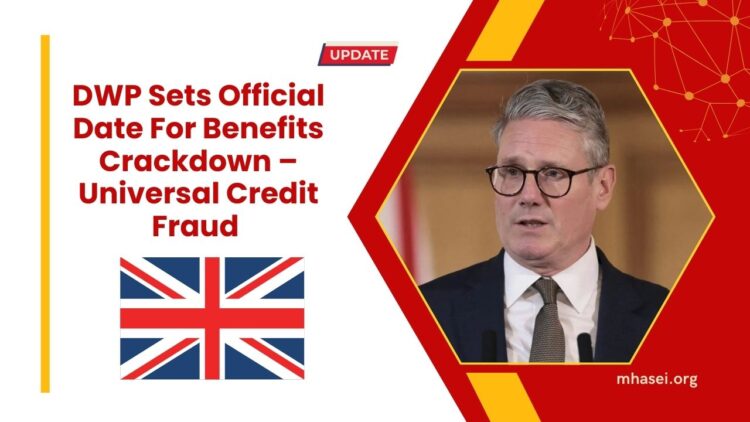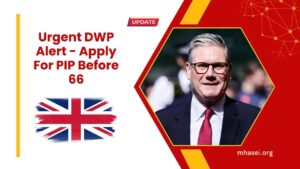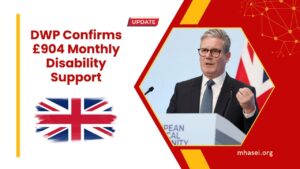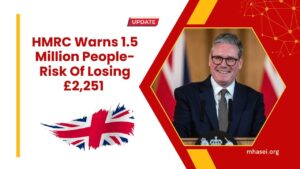As we move through August and September 2025, the Department for Work and Pensions (DWP) is preparing for one of the most significant benefits crackdowns in decades.
From April 2026, banks across the UK will begin carrying out mandatory checks on accounts linked to Universal Credit, Pension Credit, and Employment and Support Allowance (ESA) claims.
The aim is simple: to identify fraudsters who are claiming benefits they are not entitled to and reduce the billions of pounds lost every year due to fraud and error.
For genuine claimants, the DWP insists that nothing will change—strong safeguards are being put in place to ensure privacy and protect those who follow the rules.
This major reform is expected to save nearly £1 billion over the next five years and ensure that taxpayers’ money goes to people who truly need financial support.
Why the Crackdown Is Happening
In recent years, fraud and error in the welfare system have reached record levels. The latest figures show that in 2025, an estimated £9.5 billion was lost due to overpayments. A significant share—£6.35 billion—came from Universal Credit alone.
With the cost of living crisis still affecting millions of households, the government argues that it is more important than ever to protect public funds. Ministers say the new system will allow them to detect problems earlier and stop abuse before it grows.
What Will Change from April 2026
From April 2026, banks will be required to conduct eligibility checks on accounts where benefits are paid. These checks are not about everyday spending but about spotting clear red flags such as:
- Savings above £16,000 (the cut-off point for Universal Credit eligibility).
- Evidence of living abroad while still receiving UK benefits.
- Other irregularities that may indicate a breach of benefit rules.
The DWP will not automatically take action against a flagged account. Instead, the information will be reviewed by human decision-makers, who may then ask claimants for more evidence.
Safeguards for Claimants
The government stresses that the system is not designed to punish honest claimants. Safeguards include:
- No access to spending details – banks will not share transaction histories.
- Independent oversight – an annual review will be reported to Parliament.
- Code of Practice – strict rules will guide how banks carry out checks.
- Human review only – no decisions will be made by an algorithm.
- Penalties for banks if they overshare beyond what is legally required.
For most people, the introduction of this system will have no impact at all, as long as they remain within the eligibility rules.
Timeline – August to September 2025 Update
Right now, in August–September 2025, the government is in the preparation phase:
- Mid-2025: Coordination with banks and testing the data-sharing framework.
- Late 2025: Finalisation of the Code of Practice and training for DWP staff.
- April 2026: Official rollout begins across the UK.
- 2026–2027: Expansion and refinement using a “test-and-learn” approach.
This means claimants still have several months to prepare, understand the rules, and ensure their claims are accurate.
Who Will Be Affected
The crackdown will initially cover the benefits where overpayments are highest:
- Universal Credit (UC)
- Pension Credit
- Employment and Support Allowance (ESA)
The State Pension is excluded and cannot be added later.
For Universal Credit specifically, the most common trigger will be if a claimant’s savings exceed the £16,000 limit.
How the Checks Will Work
Here’s how the new system will operate:
- DWP sets rules – for example, savings above £16,000.
- Banks check their accounts – they match benefit-linked accounts against these rules.
- Banks send alerts – if an account breaks the rules, a flag is sent to the DWP.
- Human review – DWP staff check the alert and decide if further action is needed.
- Investigation if required – claimants may be asked to provide evidence before any decision is made.
Financial Impact
The government expects major savings from this policy.
- Annual Overpayments Identified: Between 50,000 and 100,000 cases.
- Projected 5-Year Savings: Up to £940 million.
- UC Overpayment Rate: Expected to fall further from the current 9.7%.
Potential Penalties
For those caught deliberately breaking the rules, tougher penalties are planned:
- Civil fines for small-scale fraud.
- Direct recovery from bank accounts for large overpayments.
- Driving bans of up to two years for those refusing to repay fraud-related debts.
Quick Facts
| Item | Details |
|---|---|
| Start Date | April 2026 |
| Benefits Covered | Universal Credit, Pension Credit, ESA |
| Excluded | State Pension |
| Savings Limit (UC) | £16,000 |
| Expected Cases Detected | 50,000–100,000 annually |
| Projected 5-Year Savings | £940 million |
| Fraud & Error (2025) | £9.5 billion |
| UC Overpayments (2025) | £6.35 billion |
What Claimants Should Do Before April 2026
As of August–September 2025, claimants still have time to prepare.
- Review savings and income to ensure you meet eligibility rules.
- Report any changes in household, work, or finances to the DWP immediately.
- Keep records of your savings, investments, and travel.
- Stay informed about the rollout timeline so you know what to expect.
The DWP benefits crackdown, set for April 2026, is one of the government’s biggest efforts to fight fraud and error in the benefits system. As of August and September 2025, preparations are underway, with banks, the DWP, and Parliament working together to ensure the system is ready.
For claimants who follow the rules, there is nothing to fear—your privacy is protected, and no decisions will be made without human review. But for those attempting to abuse the system, the message is clear: the DWP is stepping up its efforts to stop fraud and reclaim taxpayer money.
FAQs
Will my spending habits be checked?
No. Banks will not share your purchases or transaction history, only simple eligibility flags like savings above £16,000.
Which benefits are included in this crackdown?
The crackdown covers Universal Credit, Pension Credit, and ESA. The State Pension is excluded.
When exactly will the checks start?
The system will roll out from April 2026, but preparations and testing are happening throughout late 2025.




